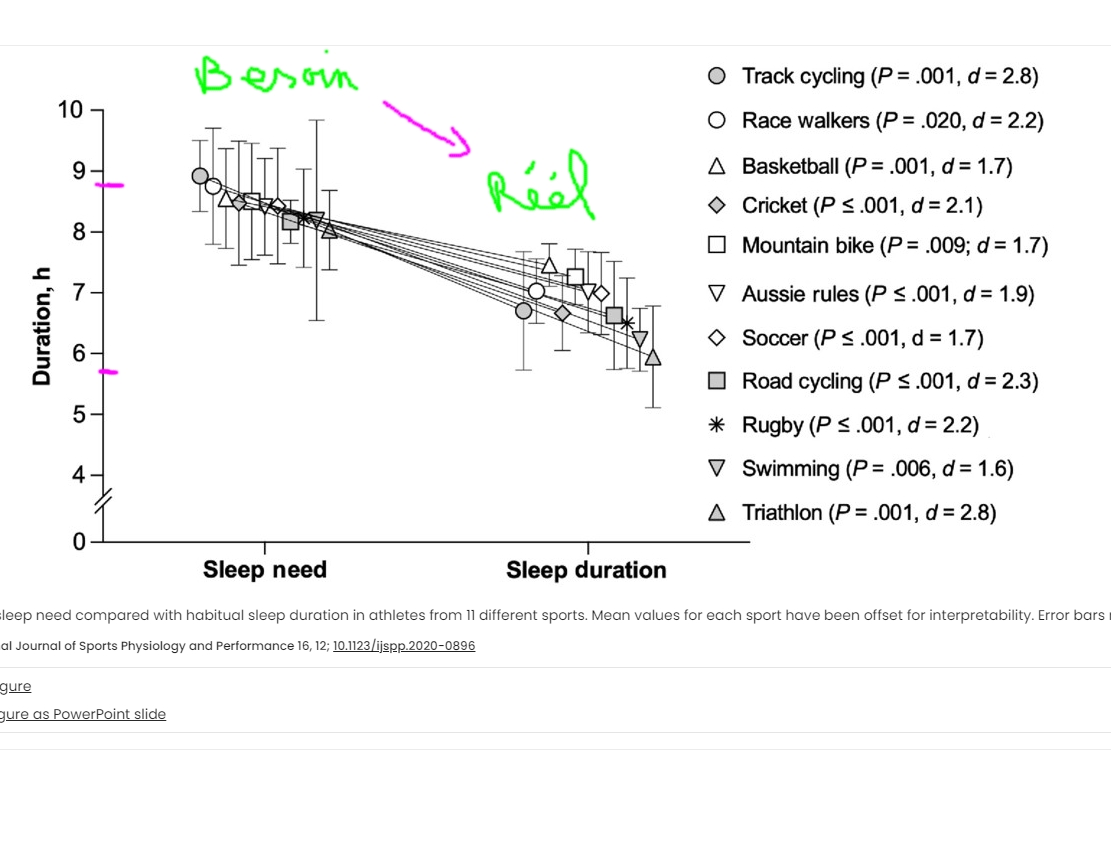How Much Sleep Does an Elite Athlete Need?in International Journal of Sports Physiology and Performance 2021 Volume 16: Issue 12 Page Range: 1746–1757
Charli Sargent,
Purpose: Anecdotal reports indicate that many elite athletes are dissatisfied with their sleep, but little is known about their actual sleep requirements. Therefore, the aim of this study was to compare the self-assessed sleep need of elite athletes with an objective measure of their habitual sleep duration.
Methods: Participants were 175 elite athletes (n = 30 females), age 22.2 (3.

years (mean [SD]) from 12 individual and team sports. The athletes answered the question “how many hours of sleep do you need to feel rested?” and they kept a self-report sleep diary and wore a wrist activity monitor for ∼12 nights during a normal phase of training. For each athlete, a sleep deficit index was calculated by subtracting their average sleep duration from their self-assessed sleep need.
Results: The athletes needed 8.3 (0.9) hours of sleep to feel rested, their average sleep duration was 6.7 (0.

hours, and they had a sleep deficit index of 96.0 (60.6) minutes.
Only 3% of athletes obtained enough sleep to satisfy their self-assessed sleep need, and 71% of athletes fell short by an hour or more. Specifically, habitual sleep duration was shorter in athletes from individual sports than in athletes from team sports (F1,173 = 13.1, P < .001; d = 0.6, medium), despite their similar sleep need (F1,173 = 1.40, P = .24; d = 0.2, small).
Conclusions:
The majority of elite athletes obtain substantially less than their self-assessed sleep need. This is a critical finding, given that insufficient sleep may compromise an athlete’s capacity to train effectively and/or compete optimally.














